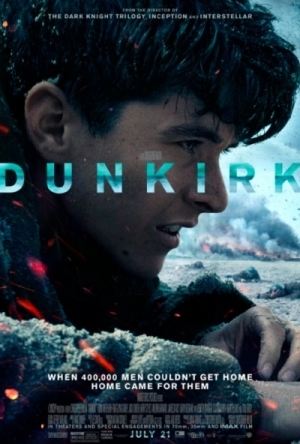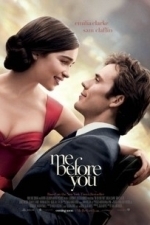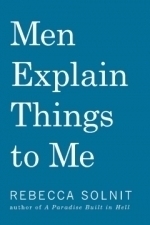
EPIC Adventures - Kids Stories
Book and Education
App
What if we could inspire our children to find the EPIC in the everyday? Opening their eyes to...
Purple Phoenix Games (2266 KP) rated Trust Me, I'm a Superhero in Tabletop Games
Oct 8, 2020
Trust Me, I’m a Superhero is a negotiation-style party card game in the vein of Apples to Apples. In it players are bogus superheros answering the Call for Help and attempting to convince the Director to send them out as the city’s hero.
DISCLAIMER: We were provided a prototype copy of this game for the purposes of this review. These are preview copy components, and I know for sure that the final components will be different from these shown. I usually include a messy photo as my last of the review, but in this case I captured the art style that will be used in the final version. You are invited to back the game through the Kickstarter campaign launching October 27, 2020, or purchase through any retailers stocking it after fulfillment. -T
To setup, shuffle the Super deck and Power deck separately. Deal each player five cards from each deck and the game may begin!
Playing Trust Me, I’m a Superhero is incredibly simple. From the hand of 10 cards dealt players will choose one Super card and one Power card to mash together creating a lame superhero. Players will display their superhero face-up in front of them. The player who is the current Director will flip over the top Call for Help card, read it aloud, and then players will initiate discussion with the Director to convince them that their hero should be sent to answer the call. The Director then chooses the best superhero by awarding the Call for Help card to the winning player. The next player in clock-wise order is the next Director. Play continues in this fashion until a player has won three Call for Help cards or some other determined time limit.
Components. Well, I cannot really comment on the components too much as again, I am using a prototype copy with prototype non-final artwork. From the photo below of the art style the final game will be using I can see that the art is whimsical and cartoony, which is perfect for this game. I am also sure that components will probably be upgraded as a result of a successful Kickstarter campaign with crushed stretch goals.
I have also played and reviewed Trust Me, I’m a Doctor and I said that I liked it, and I do. But if I like Trust Me, I’m a Doctor then I love Trust Me, I’m a Superhero. Just the added little twist of choosing your Super and Power cards BEFORE you see what the Call for Help will be is excellent. This game would be so different if you saw the Help card prior to assembling your Super Power. It would be too easy and not at all hilarious. I am so glad this twist exists and helps to elevate this from a good game to a great little A2A spin-off that CAN get NSFW with the right (or wrong?) people, and will feature some fun art. If you are interested in this little title, please consider backing it on Kickstarter on October 27, 2020! Tell them Purple Phoenix Games sent ya or I’ll send over Solar-Powered Punch or Seductive Corpse to rough you up a bit.
Bob Mann (459 KP) rated The Invisible Man (2020) in Movies
Jan 9, 2021
Australian writer/director Leigh Whannell is famous as the writer behind the "Saw" and "Insidious" franchises. So he knows a thing or two about crafting horror movies. And in this Blumhouse production, after a clever attention-grabbing opening, he really takes his time in building an understanding of Cecilia's mental state. When things start to happen, they happen so stealthily that I needed to hit the rewind button a couple of times (no cinema experience for this one I'm afraid). Cinematographer Stefan Duscio keeps slowly panning away from Cecilia across the room to show empty corridors before slowly panning back again. It's superbly effective and was comprehensively creeping me out!
When the set action pieces do occur then they are satisfactorily exciting, albeit wildly implausible. I did not see some of the "Surprises" coming, making them jolt-worthy. And the denouement really delivered for me, reminiscent of Hitchcock's style.
Now most famous for "Mad Men" and "The Handmaids Tale" on TV, Elisabeth Moss has delivered a range of impressive film performances including in "High Rise" and - as most closely related to this role - in "Girl, Interrupted" as mental patient Lisa. It's a star turn, no doubt about it.
This movie was intended by Universal to be part of the "Dark Universe" series. But the Tom Cruise flop "The Mummy" unfortunately put paid to that. Which is a great shame. If they'd started with this one, then they might have had a hit on their hands. With a post-credits "monkey" (there isn't one in this movie by the way) they could have lined up into the follow-up movie and started the ball rolling.
It's a rollicking action flick that had my attention throughout. However, the initial question it poses - haunting, 'all in the mind' or something else - gets clarified a little too early for me (and - note - is spoiled by the trailer), so the movie falls short of being a classic for that reason.
There's one aspect of the movie that really irritated me. And that is that there was no credit whatsoever for the idea of H.G. Wells that originated this story. There's a discussion of that here: since Wells died in 1946, his copyright will have expired on his works 70 years later. This is definitely NOT a retelling of his story, but in reusing the novel's title it would seem at least 'polite' to include a "Based on an idea by H.G. Wells" in the credits somewhere.
All in all, this is still a bit of a B-movie, but its a bloody good one! Utterly preposterous at times, and with decision-making that would feel at home within the Trump presidency, it's an entertaining rollercoaster of a movie. Definitely comes with a "recommended" from me and I'll look forward to a re-watch at some point.
For the full graphical review, please check out the One Mann's Movies review here - https://bob-the-movie-man.com/2021/01/09/have-you-seen-the-invisible-man/ .
Gareth von Kallenbach (980 KP) rated Dunkirk (2017) in Movies
Jul 11, 2019
When we discuss, reflect, or are taught about World War II, we often think the turning points of the war as the Battle of the Bulge, Leningrad, Midway, or D-Day. In doing this, we overlook moments like Dunkirk. Christopher Nolan exposes how vital this moment was in determining the fate, not only of the war, but the world in Dunkirk.
It is hard to describe what the film is like just from the visuals. It captures you and surrounds you by making the audience feel as though they are witnessing these events from a third-person perspective, as well as, through the eyes of those involved. The film itself is not limited to just the war or a discussion of the circumstances that led up to the war itself. There are no major battles shown, however, the film demonstrates quite vividly the horrors of war, the confusion, the chaos, the brutality, and the fear that each moment might be your last.
Dunkirk, masterfully tells the story of those involved in the evacuation of those troops that found themselves being pursued by Nazi Germany. Each frame will have audiences fearing for the safety of the men on the screen and hoping that they will somehow make it home despite all indications that their fate is sealed. Nolan gives audiences the opportunity to see the events in a multilayered way so that we can understand all of the moving parts involved in this massive undertaking. It renews the appreciation that many of us have for those who fought in World War II and offers a new sense of appreciation for younger generations who are far removed from those events. Most impressive about the film is its ability to be more historically accurate in displaying the different people who actually were fighting. It is not, like Saving Private Ryan, a film that exaggerates American participation in the war to make it look as though the only people fighting were Americans and Nazis. Dunkirk shows how the French, British, and Belgians, of various colors and backgrounds were fighting well before summer of 1944.
The film also pulls of quite an ambitious task by removing the Nazis from the film. This is not to say that there is no German presence in the film, rather, they minimize the focus on the Nazis in order to keep the focus on those evacuating and those involved in assisting with the efforts. In my viewing, I felt that this strengthened the film in adding to the fear by having a faceless enemy, one that could be lurking around the corner or coming around the corner at any moment. This added to the tension to make audiences feel the fear that so many of these young men must have had as they waited to board their ships to get home.
Dunkirk is impressive, emotional, and full of tension. It raises the bar with respect to how historically-based films should be in the representation of events. It does not rely on one linear story to capture the audience. It is an intelligent and overdue homage to the men and women who did all they could to ensure that these men made it home.

iBal Rotary
Productivity and Navigation
App
iBal Rotary is a dedicated Helicopter weight and balance app for iPhone, iPad and iPod. Designed...

Course For WordPress 101
Productivity and Education
App
Wordpress is “the” software for creating blog sites. Join expert trainer, Geoff Blake as he...

123 Coloring Book for children age 1-10: Games free for Learn to write the Spanish numbers and words while coloring with each coloring pages
Games and Education
App
Write & Color Spanish numbers 123 numbers Coloring Book | Coloring Free Games for Kids Boy and Girls...
Bob Mann (459 KP) rated Me Before You (2016) in Movies
Sep 29, 2021
Emelia Clarke (“Game of Thrones”, “Terminator: Genesys”) plays Lou Clark, an ‘invisible’ girl “with potential” who is trapped – due to unemployment-led poverty – living with her parents in a provincial castle town (a picturesque Pembroke, though notably hardly a Welsh accent in earshot). Her boyfriend Patrick (“Harry Potter”’s Matthew Lewis) is a running nut that doesn’t play to her romantic needs in any way. Circumstance leads her into the job of a carer for a quadriplegic, Will Traynor (Sam Claflin, from “The Hunger Games” sequels) who also happens to be the son of the local millionaire couple (played by Charles Dance and Janet McTeer). They own the castle, a large mansion and most of the surrounding countryside too.
Will – previously a sports jock – is paralyzed from the neck down after an accident and is a frustrated and suicidal mind in a useless body. Can the quirky and vivacious Lou bring him out of his morbid shell and find him a life worth living again?
From this outline, you might think the story almost writes itself, and for most of the film it does. But the writers have a number of twists and turns in store which – depending on your sentiments – might entertain or appall.
As her first leading actress role in a non-action feature it’s a bit difficult to sum up Emilia Clarke’s performance. At face value it could be described as an advanced case of over-acting, with an extensive array of kooky looks and gurning facial expressions. (Those eyebrows! At some point we’re going to have to see her acting opposite Cara DeLevingne in a “Batman v Superman” eye-brow-off). On the other hand, she plays the part with such vivacity and charm – and notably in a manner so in keeping with the character she portrays – that it is hard not to be enchanted by her: I certainly was.
Claflin plays the brooding and resentful Traynor well and Matthew Lewis shows he is growing into a really professional jobbing actor as he enters his mid-20’s.
Also radiant (she always is… sorry to break it to the wife like this… but I am basically in love with her!!) is the ever-gorgeous Jenna Coleman (“Dr Who”, “Victoria”) in what is to date a rare outing for her onto the big screen (she previously has only had a small role in the first “Captain America” film: she really needs a breakout movie like Carey Mulligan’s “An Education”). Coleman and Clarke make a very credible pair of sisters, with the “bed” discussion scene being very touching.
Elsewhere a number of other well-known faces crop up including Brendan Coyle (“Downton Abbey”) as Lou’s father and Joanna Lumley as a wedding guest with a handy line in references.
The soundtrack by Craig (“Love Actually”) Armstrong is top notch with pleasing songs from Ed Sheeran, Imagine Dragons, Cloves and We The Kings.
The production quality is as professional as you would expect from a British-made movie, although the Mallorca and Paris locations are not particularly well exploited, since for a large chunk of these scenes I was convinced they hadn’t left Pinewood!
So, a bit of a mixed bag, but enjoyable nonetheless. A guilty pleasure. If you like a romantic piece of escapism this is one for a wet Sunday afternoon, provided you have a box of tissues handy.
Jamie (131 KP) rated Men Explain Things to Me: And Other Essays in Books
Jul 26, 2017
The titular essay, Men Explain Things to Me, discusses the author’s experiences with men explaining things with the assumption that she couldn’t possibly know due to her gender. While I was nodding my head that yes, I have experienced this as well, there was not much else. There was little to no research into the history of why this might be or any additional insight into the topic which was really a let down, I didn’t feel like I got much out of it. I should have known that the rest of the essays in this collection would be the same but I was optimistic.
One of the better essays was In Praise of the Threat: What Marriage Equality Really Means which discussed how the fight for marriage equality, or same-sex marriage, has been redefining the traditional gendered views of marriage and I thought that this was really great. However in a later essay Solnit goes on to claim that gay marriage would never have been possible if it weren’t for feminists redefining marriage as a union between equals, which is a statement I found both bold and mildly insulting.
I also need to address a specific statement that became the basis the essay, The Longest War, which was the following:
“Violence doesn’t have a race, a class, a religion,
or a nationality, but it does have a gender.”
It is very apparent that Solnit doesn’t know a thing about intersectionality because any minority can tell you that the statement above is laughably false. Is it true, statistically, that more reported violent crimes are perpetrated by men? Yes. Do people in many societies have an issue with toxic masculinity? Yes. Does this mean, then, that violence has a gender, that it is purely a male problem? No. To say that it doesn’t have a specific race, class, religion, or nationality despite evidence to the contrary throughout history is naïve.
Solnit continues on to rant about how men are the almost exclusive source of violence and assault and how everyone should acknowledge this so we can go about finding solutions. She doesn’t go into much more depth than that or offer up much in the way of solutions herself. A large portion of the essay is just her fluffing up the piece with a literal list of vague examples which might not mean much to folks less knowledgeable about violent crimes. There are also quite a few statistics thrown in with absolutely no sources to back up the claims.
Not that I doubt the information provided, but in times where people cherry pick the news to fit their own narrative books like this become questionable. After flipping through the back of the book I eventually found a note in the acknowledgements section that Solnit chose to edit out her sources for the book version, but that they could be found on the online versions of her essays. It’s careless and lazy for an author that wants to be taken seriously.
Solnit also postulates at several points that because she has published several books that she is an authority and I found that sort of attitude to be self defeating. She talks about another author that she argued with about Virginia Woolfe and claims that she had “won” which just makes the author sound childish, and I wondered what the point of the essay was to begin with. It felt out of place for the rest of the collection and any connections she attempted to make were shaky at best.
I think that Solnit had some good ideas but the execution was extremely poor. Because she spends so much time listing examples and being over dramatic in her descriptions the actual point of discussion in her essays becomes muddled and unclear. There are far better essays out there that address the exact same topics. Men Explain Things to Me just wasn’t worth the time.





